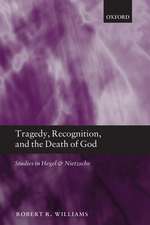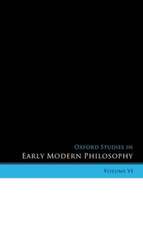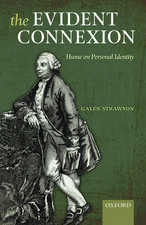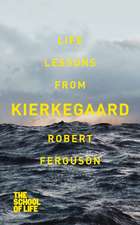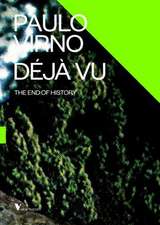Spinoza: The Ethics of an Outlaw
Autor Ivan Segré Traducere de David Broderen Limba Engleză Paperback – 8 feb 2017
| Toate formatele și edițiile | Preț | Express |
|---|---|---|
| Paperback (1) | 176.44 lei 3-5 săpt. | |
| Bloomsbury Publishing – 8 feb 2017 | 176.44 lei 3-5 săpt. | |
| Hardback (1) | 711.84 lei 6-8 săpt. | |
| Bloomsbury Publishing – 8 feb 2017 | 711.84 lei 6-8 săpt. |
Preț: 176.44 lei
Preț vechi: 206.15 lei
-14% Nou
Puncte Express: 265
Preț estimativ în valută:
33.77€ • 34.98$ • 28.18£
33.77€ • 34.98$ • 28.18£
Carte disponibilă
Livrare economică 01-15 martie
Preluare comenzi: 021 569.72.76
Specificații
ISBN-13: 9781350016613
ISBN-10: 1350016616
Pagini: 200
Dimensiuni: 129 x 198 x 14 mm
Greutate: 0.23 kg
Editura: Bloomsbury Publishing
Colecția Bloomsbury Academic
Locul publicării:London, United Kingdom
ISBN-10: 1350016616
Pagini: 200
Dimensiuni: 129 x 198 x 14 mm
Greutate: 0.23 kg
Editura: Bloomsbury Publishing
Colecția Bloomsbury Academic
Locul publicării:London, United Kingdom
Caracteristici
Significant original contribution to Spinoza scholarship via a sustained reading of Spinoza's relation to religion and the bible
Notă biografică
Ivan Segré is a doctor in philosophy and student of the Talmud who lives in Israel. He is the author of Qu'appelle-ton penser Auschwitz? (2009) and co-editor (with Alain Badiou and Eric Hazan) of Reflections on Anti-Semitism (2013).
Cuprins
Translator's NotePrologue Part One: Election, Hatred, and The Philosopher: Spinoza and "Bourgeois" Theorists Introduction 1. Discourse on Method 2. The Song of the Sign 3. Kingship 4. On Contradiction Part Two: The Bible Spinoza Introduction 1. The At Judaei Manifesto2. A 'Christ' without the Passion 3. The Origin of the Law4. True Otherness 5. The Masquerade 6. The Tree of Knowledge Epilogue Apologue: The Spectre's Manifesto NotesIndex
Recenzii
[An] excellent and original engagement with Spinoza's thought . Segré accomplishes no small feat: he gives a coherent reading of Spinoza in light of Jewish exegetical tradition that does not come from a place of harsh judgment . but rather, from a place of love.
Ivan Segré's Spinoza: The Ethics of an Outlaw is a major and long overdue contribution to our understanding of Spinoza's complex and overdetermined relation not merely to Judaism, but to the great texts of the Jewish tradition as Spinoza understood it. Segré possesses the ability to follow Spinoza through the labyrinth of Maimonides' Guide and contextualize the citations and criticisms whose orientation has escaped most readers. Of particular interest is his demonstration that Christianity from Spinoza's perspective is as concerned with the disposition of the flesh as the Judaism it claimed to supersede: if circumcision is nothing, then so is the crucifixion. Segré's Spinoza neither celebrates (a) religion nor does he demand its suppression in favor of of a secularism that rests on a disavowed sacralization of state sovereignty. His god is the collective power by which the Jews were delivered from the House of Servitude. This is a powerful and original reading that opens new areas of research and offers conclusive proof of Spinoza's contemporaneity.
Ivan Segré's Spinoza: The Ethics of an Outlaw is a major and long overdue contribution to our understanding of Spinoza's complex and overdetermined relation not merely to Judaism, but to the great texts of the Jewish tradition as Spinoza understood it. Segré possesses the ability to follow Spinoza through the labyrinth of Maimonides' Guide and contextualize the citations and criticisms whose orientation has escaped most readers. Of particular interest is his demonstration that Christianity from Spinoza's perspective is as concerned with the disposition of the flesh as the Judaism it claimed to supersede: if circumcision is nothing, then so is the crucifixion. Segré's Spinoza neither celebrates (a) religion nor does he demand its suppression in favor of of a secularism that rests on a disavowed sacralization of state sovereignty. His god is the collective power by which the Jews were delivered from the House of Servitude. This is a powerful and original reading that opens new areas of research and offers conclusive proof of Spinoza's contemporaneity.




